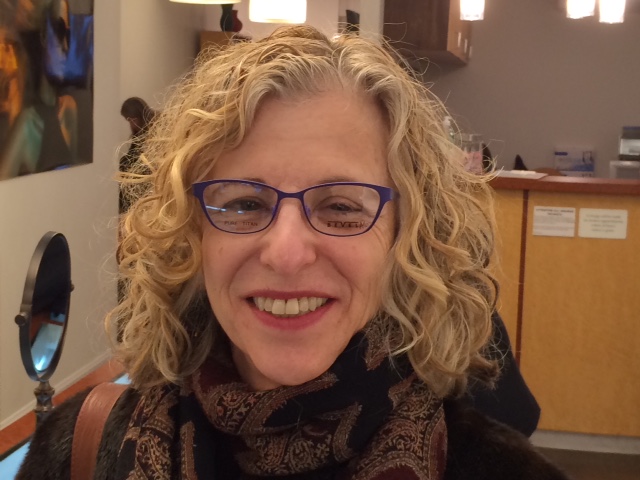Change in the air. Sugar-flecked red, yellow, orange, and green jelled semi-circle slices; macaroons; pounds of nuts; Barton’s tin can almond kisses; overflowing grocery bags. My mother and I shop among the street carts and small shops that dot Blake Avenue in East New York, Brooklyn.
Although my family is not observant, the white gold-rimmed dishes, used only for special occasions, Maxwell House Haggadahs, and a Seder plate adorn the table. My brothers and I play the hazel nut game. The youngest, I always win the search for afikomen. Passover, my favorite childhood Jewish holiday.
The plagues, a backdrop for wine glass pinky dipping. What an odd custom, I think. Bored by the time we reach the sixth dip, I pay no attention to the final plagues. It isn’t until my late thirties that I begin to learn the full account of the Exodus. I am mortified.
“It was in the middle of the night when Adonai struck down every firstborn son in the land of Egypt, from the firstborn son of Pharaoh sitting on his throne, to the firstborn of the captive who was in prison, and every firstborn animal. Pharaoh got up at night, he, all his servants and all the Egyptians, and there was a great cry in Egypt, for there was no house where there were no dead” (Exodus 12:29-31).
Like the fourth child I did not even know what to ask, although I was terribly troubled. My primitive theological understanding then blamed God for multiple injustices. It took immersion in Torah over many years and exposure to the many notions of God within Judaism for me to learn this: that humankind manifests Godliness in this universe. We bring the divine into the world through our actions.
Having attended and taught in the public schools and colleges in New York City, I was deeply aware of the racial issues in our society. But, having been away from that world for many years, and with the election of President Obama, I naively believed that life was improving for Blacks in this country. The recent revelations of outright injustice, violence and exploitation against Black Americans by fellow citizens, who, moreover, are their designated protectors, are appalling and grievous. While life has improved for some, side-by-side flourish hatred and bigotry – the Hillel sandwich – a dab of charoset and maror stuck between the bread of affliction.
The parallels between the Pesach Exodus verses and the circumstances of young Black men and women in this country are shocking, especially at this time of year when we celebrate our own redemption. Commenting on verse 12:31 “For there was no house where there were no dead,” Rashi points out: “If a firstborn son was there, he died. If there was no firstborn son there, then the eldest of the household is regarded as a firstborn.”
Statistics reveal that one in three black men can expect to spend time imprisoned over the course of their lives – first, second and third-born are being incarcerated. Loud cries echo throughout our cities. The imperative is clear. As former captives, we are compelled by our ethical laws to participate in the liberation of these men.
The Sefat Emet tells us: “Pesach is the season of our freedom…Afterwards on Shavu’ot, is the time when our Torah is given. Torah is renewed on Shavu’ot in accordance with the freedom that has been awakened on Pesach. Something like this happens every single day as well… there is still a renewed revelation of Torah in each generation, each year, and each day…That is why freedom, too, needs to be renewed each year, through this we are able to renew our acceptance of divinity.” Rabbi Arthur Green comments on this passage: “Our Jewish role…[is] to support people’s need for liberation and to help them move from Egypt to Sinai, from the exultation of being free to hearing the commanding voice that calls for community based on mutual caring…”1
At your Seder this year, with each pinky droplet of wine, I invite you to recite the names of the young Black men and women who have, through their demise, revealed the plague of racism that riddles our country.
Tanisha Anderson
Sandra Bland
Michael Brown
Akiel Denkins
Samuel DuBose
Eric Garner
Freddie Gray
Akai Gurley
Quintonio Le Grer
Tamir Rice
Others whose names we do not know.
1The Language of Truth, The Torah Commentary of the Sefat Emet, Rabbi Yehudah Leib Alter of Ger, translated and interpreted by Arthur Green, p. 391-392.
Rabbi Judith Edelstein, D.Min., BCC, teaches, counsels and converts on the Upper West Side of Manhattan.
Want to receive Torah from T’ruah in your inbox every week? Sign up here!


